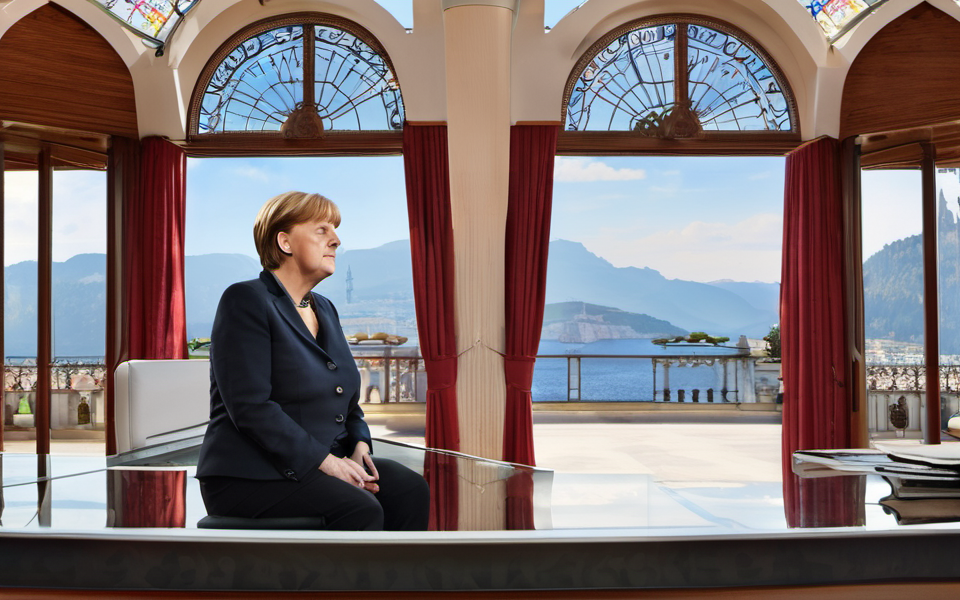Ever wondered how one leader can steer a whole region through a financial storm? Dive into the dramatic tale of Angela Merkel and her strategic brilliance during the Eurozone crisis!
Angela’s Early Concerns
Angela Merkel, the Chancellor of Germany, sensed the brewing storm in the Eurozone long before it hit full force. She knew that Greece and other nations were struggling financially. As a scientist by training, Merkel had a knack for understanding complex problems. She knew she had to act swiftly and wisely to prevent a domino effect that could jeopardize the entire region.
While some European leaders were paralyzed by the enormity of the crisis, Merkel immediately began to weigh her options. Meetings were held behind closed doors in Berlin. Merkel’s focus was clear: she needed sustainable solutions that would keep the Eurozone intact without overly burdening Germany’s taxpayers. Her approach was to balance financial aid with stringent economic reforms.
With a sense of urgency, Merkel and her team formulated plans to address the crisis. They held numerous talks with European Union officials and other world leaders to create a unified strategy. Merkel’s early concerns were validated, and she began championing the idea of collective responsibility within the Eurozone.
Formulating a Plan
As the crisis deepened, Merkel realized that simply throwing money at the problem wouldn’t solve it. A comprehensive plan was necessary to restore stability and confidence in the Euro. Merkel championed the idea of bailouts, but these came with strings attached. She advocated for strict financial oversight and mandatory economic reforms in countries receiving aid.
Team Merkel worked day and night to put together a robust and sustainable framework. The plan included stringent checks and balances, ensuring the funds were used for reviving economies rather than wasted. Merkel’s insistence on rigorous reform was often criticized, but she believed that only through discipline could the Eurozone emerge stronger.
The regular late-hour discussions and intense negotiations finally started bearing fruit. EU leaders began to rally around Merkel’s vision, albeit cautiously. Merkel was not afraid to stand her ground, even in the face of opposition. Her combination of firmness and empathy won her many adherents in the corridors of European power.
Navigating the Opposition
Perhaps the most challenging aspect for Merkel was the opposition she faced, both at home and abroad. German taxpayers were understandably wary of bailing out other countries, fearing that the funds would be misused. In other Eurozone countries, citizens were frustrated by the harsh austerity measures that came with the financial aid packages.
Merkel, always the pragmatic leader, took it upon herself to communicate the necessity of these measures. She held numerous press conferences and gave interviews to explain the importance of saving the Euro for the future of Europe. Back in Germany, she engaged in talks with opposition parties to gain broader political support.
Amidst the skepticism and opposition, Merkel’s resolve remained unshaken. She opted for a blend of diplomacy and hard negotiation. By doing so, she managed to secure essential agreements that propelled the European Union towards recovery. Merkel’s strategy wasn’t about quick fixes; it was about laying down a solid foundation for sustainable growth.
The Road to Recovery
The journey through the Eurozone crisis was marked by ups and downs, but Merkel’s perseverance paid off. Slowly but surely, the continent began to see signs of recovery. Germany under Merkel emerged as a pillar of stability and growth, providing crucial support to its neighbors.
Merkel’s leadership during this period was central to the slow but steady rebound of the Eurozone economies. Her decisive actions and firm stance on economic reforms earned her the title of a crisis manager par excellence. The financial aid and reforms she championed started showing positive results, and confidence in the Euro began to restore.
Reflecting on the tumultuous period, Merkel once said, “Crisis creates opportunity.” Indeed, through the Eurozone crisis, Merkel demonstrated that thoughtful, resolute leadership could navigate even the roughest of financial storms. Her legacy during this period remains a testament to the power of determined, smart, and compassionate governance.






